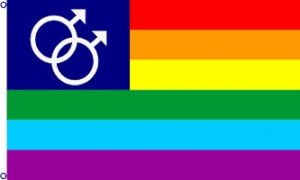 In recent years same-sex marriage proponents and groups claiming a host of new international LGBT rights have been able to make even international law somewhat interesting. It is no secret that International law is not terribly exciting – reading the minutes of a meeting of the UN International Law Commission or an international human rights body is likely to put even the most stolid reader to sleep.
In recent years same-sex marriage proponents and groups claiming a host of new international LGBT rights have been able to make even international law somewhat interesting. It is no secret that International law is not terribly exciting – reading the minutes of a meeting of the UN International Law Commission or an international human rights body is likely to put even the most stolid reader to sleep.
In the last five years LGBT groups have garnered significant support for their claims with international bodies in the European Union, the Organization of American States and the United Nations. Last fall the Office of the High Commissioner for Human Rights released a publication declaring that UN member states had “core obligations” towards LGBT persons that included same-sex marriage or a substitute, as well as special protections for LGBT speech above and beyond those provided for other types of speech. UN member states never agreed to anything even remotely related to these propositions in a treaty or even non-binding resolutions, but LGBT groups celebrated the controversial publication nonetheless.
The UN Human Rights Committee (HRC), perhaps more than any other international body, has championed the LGBT cause for the past twenty years, and it is its comments which the OHCHR relies upon to make most of its assertions. The HRC is an international body of experts that monitors the implementation of the International Covenant on Civil and Political Rights (ICCPR), one of 9 UN treaties deposited with the secretary general of the UN that creates such a body. It is one of the more established UN human rights bodies, with more than 30 years of practice, and it has considerable influence in the generally ignored microcosm of UN treaty bodies.
Now to my point. Last year the committee issued General Comment 34 on articles 19-21 in the ICCPR, on freedom of expression. It repeats what the committee has previously said about restriction on speech based on concerns for preserving public morals, namely, they must be rooted in the moral tenets of “more than a single tradition.” The HRC periodically releases comments on individual articles of the ICCPR. In the last twenty years it has developed ever more comprehensive (and much lengthier) comments like GC 34, and declares them to be authoritative interpretations of the treaty it monitors.
No one really understood what the HRC meant by “more than one” or even by “tradition” at the time the GC was released. How the committee came to hold that opinion, and how it should be understood remains a mystery. Perhaps recent events in France provide some answer to this?
We are witnessing strong opposition to same-sex marriage, same-sex adoption, and IVF for homosexual couples in France (even by homosexual groups!). Much of this opposition is because, and perhaps surprisingly for an otherwise liberal nation, many French people believe children should have a mom and a dad, and the organizers of the huge rally that took place in Paris two weeks ago distanced themselves from any moral claims that homosexual conduct is morally reprehensible. But many of those who answered the call and showed up in Paris were motivated precisely by that.
There is significant moral disapproval of homosexual conduct, and not only special new rights for homosexuals, mostly from the religiously minded in the opposition movement in France. Catholics, Jews, Muslims all disapprove of homosexual conduct, let alone marriage, adoption and IVF for homosexuals. Could this provide an answer to what the HRC was getting at when it invented the multiple traditions standard? Probably not for the Human Rights committee.
In October last year the HRC committee’s multiple traditions basis for restricting free speech was cited by the same committee to condemn Russian state laws that restrict free speech to protect the morals and health of children from early sexualization by prohibiting, among other things, the promotion of homosexual practices and a homosexual lifestyle. In that case a lesbian activist was fined and detained for standing outside a secondary school with signs reading: “I am homosexual: ask me about it.” Russian secondary schools are attended by children as young as 10, but the committee did not seem to think Russia had a valid reason for restricting the free speech of Irina Fedotova.
In light of that decision, it is doubtful the committee will re-consider moral disapproval of homosexual conduct a valid ground to protect children from groups that promote homosexuality, no matter how many major traditions consider it morally reprehensible and march in the streets of Paris.



